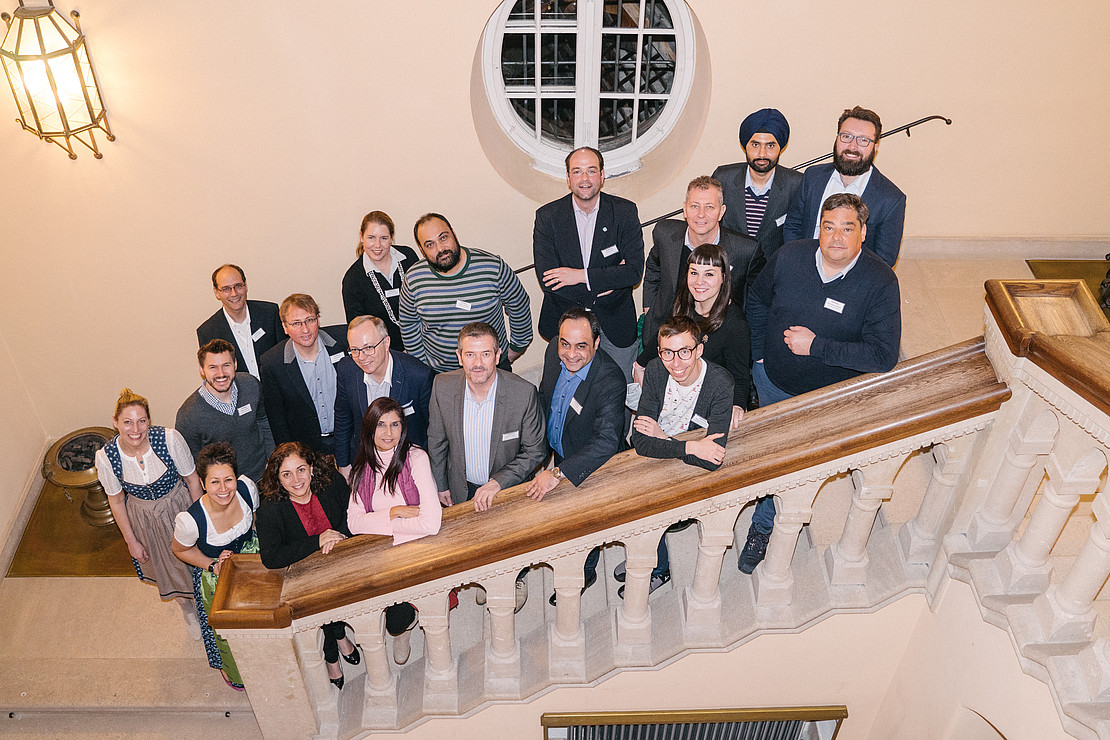University of Kassel participates in first international blockchain for science
 Image: Blocher.
Image: Blocher.The bloxberg consortium was initiated at the beginning of 2019 under the leadership of the Max Planck Digital Library and consists of eleven leading research facilities from ten different countries. The scientists in the founding consortium agree that bloxberg will change the way scientific data and results will be managed and communicated in future. With bloxberg, the consortium trusts in an online system without a classic client-server architecture, such as is currently used for websites. Instead, decentralised electronic accounting, better known as the blockchain technology, is used.
There are more than enough concrete applications and demands for a transparent and safe online system based on blockchains in science: to verify the authenticity of data, guaranteed protection of intellectual property rights, the exchange of valuable research results, peer reviewing, the publication of papers and much more.
“We repeatedly hear from our researchers that they would like to have a “time stamp” or a way to certify their research data, hypotheses and methods – particularly before these are published” – says Sandra Vengadasalam from Digital Labs. “The use of blockchain technology thus appeared obvious“.
Cryptocurrency as an example
Every new entry in the local bloxberg data base is assigned a key character string and is unalterably linked to preceding entries via a verification key before being saved, just like in the administration of digital cryptocurrencies. Protection against manipulation is guaranteed through a comparison by secure sites, the bloxberg validation nodes. Only scientific facilities are currently allowed to operate validation nodes. Every member of the consortium operates such a node in bloxberg and approves new entries, so-called “transactions” according to a precisely defined and publicly accessible consensus method. This means that entries for research claims no longer have to be limited to individual institutions, for example. Instead, “smart contracts” can be confirmed and saved directly from throughout the bloxberg network. The infrastructure can only be maintained and transactions validated from validation nodes. “We ourselves were very surprised to learn that there has as yet been no global approach such as bloxberg to meet these needs within the scientific community,” reports Friederike Kleinfercher, Digital Labs. “This is why we decided specifically to create our own, public and approval-based blockchain. So whoever operates bloxberg is very well known and has to satisfy certain criteria.”
“bergs” are the “bitcoins” in the bloxberg network
So-called “bergs” are used to interact with blockchain applications or implement intelligent contracts in bloxberg. These can be compared to bitcoins, but are not traded; all of the transactions in the bloxberg network are free. The bloxberg networks offers an application to distribute bergs to every company that wants to build on the network or use the corresponding app’s functions (https://bloxberg.org/faucet/).
Open for everyone
One important element of the bloxberg project is the transparent accessibility and the associated documentation of the interface to blockchain, which is based on an Ethereum implementation solution. Independent apps (dAPPs) can be built up via the open bloxberg programming interface. This means that anyone – for example start-ups or scientists – can establish and offer complete services and applications on the bloxberg blockchain. The Max Planck Digital Library has already completed an app exclusively for Max Planck researchers: a certification function that has been integrated in an existing service for research data. This allows Max Planck researchers to give their data a “time stamp” via the bloxberg blockchain and prove high scientific standards.
bloxberg consortium
On the initiative of the Max Planck Digital Library (MDPL), eleven leading research facilities from ten different countries joined forces in February 2019 and started work on the project. The consortium is currently made up of the following members: Carnegie Mellon, UCL, ETH Library at the ETH Zurich, Georgia Tech, IT University of Copenhagen, University of Belgrade, University of Johannesburg, University of Kassel, University of Nicosia, University of Sarajevo and the Max-Planck-Gesellschaft.
Further information on bloxberg can be found at: https://bloxberg.org/